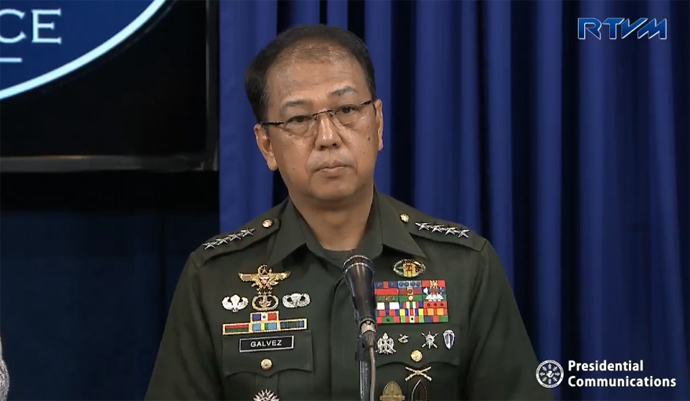News
Stringent measures in place vs. Covid-19 imported transmission

Galvez, who is also Presidential Adviser on the Peace Process, said the government wants to ensure the second wave of Covid-19 infections with the so-called “imported transmission” will be prevented amid the influx of the repatriated overseas Filipino workers (OFWs), seafarers and returning Filipinos in the country. (PIA file photo)
MANILA – The government is preparing to implement stringent health protocols and prevention measures against an imported transmission of the coronavirus disease 2019 (Covid-19) cases in the country, National Action Plan (NAP) against Covid-19 Chief implementer, Carlito Galvez Jr., said on Friday.
“Nakikita po natin na itong first wave ay nakuha sa local transmission since nung pinatupad natin ang Inter-Agency task force noong January (We are seeing that the first wave came from the local transmission since we enforced the inter-agency task force on January), at the same time, hanggang ngayon po nilalabanan pa rin natin ang local transmission (we are still battling with this local transmission),” he said in a virtual press briefing.
Galvez, who is also Presidential Adviser on the Peace Process, said the government wants to ensure the second wave of Covid-19 infections with the so-called “imported transmission” will be prevented amid the influx of the repatriated overseas Filipino workers (OFWs), seafarers and returning Filipinos in the country.
“Sa nakikita natin ngayon ang ating OFWs (As we can see with our OFWs), we are receiving more than 30,000 and they came from Covid-19 affected areas such as US, Italy, Spain and in other parts of the Middle East,” he said, noting that the special task group on overseas repatriation handles the Covid-19 preventive measures.
Galvez reported the government has already tested around 30,000 incoming OFWs and seafarers.
He said more or less 600 of them have tested positive with Covid-19 and sent to government-designated quarantine facilities for isolation.
Meanwhile, Galvez said the government only allows inbound flights for OFWs, seafarers, and returning Filipinos in the country.
The country, he said, still implements controlled and limited domestic flights.
A one-stop-shop has been set up at the Ninoy Aquino International Airport (NAIA) Terminals 1 and 2, he said.
All returning Filipinos from abroad, he said, are immediately being swabbed upon entry and isolated for a 14-day quarantine period.
“We can only allow travel if these stringent protocols are in place,” he said, adding that the country cannot do the usual travel operations during the Covid-19 pandemic.
He said the spike on Covid-19 cases is due to the so-called importation from travel.
“Magiging vulnerable po tayo kapag ang ating airports ay unregulated (we might become vulnerable from coronavirus if the airports are unregulated),” he said.
Initially, there are around 4,000 regulated inbound travelers affected in NAIA, he said.
He said NTF chairperson and Defense Secretary Delfin Lorenzana has already ordered the task force to unclog quarantine facilities in Metro Manila within two weeks.
“We will gradually lift our entry quota of at least 1,000 returning Filipinos a day if we were able to de-clog these quarantine facilities. We will do our best to hasten the process,” he added.
Galvez earlier said the Department of Transportation (DOTr), Overseas Workers Welfare Administration (OWWA), and Maritime Industry Authority (Marina), were instructed to release OFWs who have already tested negative of Covid-19.
“Our goal is to decongest our quarantine facilities and prevent them from being overwhelmed by the huge number of returning OFWs,” he said.
He added that the government is supporting the necessities of these returning Filipinos, OFWs, and seafarers.
Galvez said the government also sees the possibility “to provide cash assistance to these OFWs (so) that they can at least prepare a new life when they return to their hometowns”.
There are 30,000 returning Filipinos who have already arrived, he said.
He added that an additional 42,000 OFWs are expected to arrive in the country this June.





















